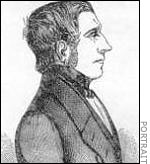 One of the legends of the Marquette University Law School is that Judge Kenesaw Mountain Landis, the first commissioner of organized baseball, was once a professor at the school. As it turns out, the story is true, at least sort of.
One of the legends of the Marquette University Law School is that Judge Kenesaw Mountain Landis, the first commissioner of organized baseball, was once a professor at the school. As it turns out, the story is true, at least sort of.
When the Marquette University College of Law opened for its first full year in the fall of 1908, it consisted of two divisions. One was an evening division that was really just a continuation of the Milwaukee Law School, a night law school acquired by Marquette in the spring of 1908. The new day division offered a more expansive curriculum leading to an LLB degree after three years of study.
The new law school was headed by Judge James G. Jenkins, a retired federal circuit court judge who had earlier been affiliated with the John Marshall Law School in Chicago. While Jenkins was a full-time dean, the University lacked the resources for a full-time faculty, so it relied upon the part-time faculty of the Milwaukee Law School and a few additional lawyers and judges from the city. However, to add a special element to the education provided by the new law school, the University announced that there would also be a group of distinguished lecturers who would not teach full-length courses, but who would visit the law school during the year and lecture on special topics.
Listed as one of the lecturers in the 1909 law school bulletin was Kenesaw Mountain Landis, then a federal district court judge in Chicago, best known for several large damage judgments awarded against large corporations in antitrust cases. Landis had argued a number of cases before Jenkins as a lawyer and had been appointed to the bench by Theodore Roosevelt in 1905, several years before Jenkins’s retirement.
Although Landis’s involvement with organized baseball was more than a decade in the future, he was already well known as a great fan of baseball and a partisan of the Chicago Cubs. (A famous picture shows Landis barely able to contain his rage at the 1906 World Series, in which his heavily favored Cubs were upset by their cross-town rivals, the White Sox.)
It appears that Landis delivered only a single lecture at Marquette, and it came near the end of the 1908-09 academic year. On May 21, after a lengthy colloquy on the status of baseball in Wisconsin, Landis launched into a lecture on “Public Criticism of the Judiciary,” in which he expressed his opposition to proposals that would penalize those who criticized the actions of individual judges. In rejecting the argument that placing judges above the world of criticism would make the judiciary more respected, he turned to a baseball analogy. “I have been going to baseball games for 30 years,” Landis told his student audience. “I never saw a game or heard of one where somebody did not call the umpire a robber or a thief, and yet no intelligent man doubts the integrity of baseball.” By the same logic, intemperate denunciations of individual judges, even if untrue, would not tarnish the image of the judiciary, at least in the eyes of intelligent observers.
As Landis’s biographer David Pietrusza has noted, in 1909, Landis considered several of his fellow federal judges in Chicago to be incompetent and corrupt, so he had reasons to support the shining of the public spotlight on his colleagues. He was particularly angry with Judge Peter Grosscup of the Seventh Circuit Court of Appeals, who the year before had written the decision overturning Landis’s attempt to fine Standard Oil $29 million. In his opinion, Grosscup had accused Landis of “arbitrary” decision-making and of believing himself to be “above the law.” As accusations of Grosscup’s personal impropriety began to surface, one can imagine that Landis was not completely disappointed.
Landis’ speech was covered in detail by all of the Milwaukee newspapers, but it appears to have attracted little attention elsewhere, although it was reported in the American Law Review, a leading periodical of the day.
The May 21 address, however, marked the end of Landis’s affiliation with Marquette, and his name disappeared from the list of lecturers in the 1910 law school bulletin.
Nevertheless, when Bud Selig lectures in Matt Mitten’s Professional Sports Law class each spring, he is the second, not the first, of baseball’s Commissioners to offer instruction at the Marquette Law School.
 In 1843, Daniel M’Naghten (left) killed the secretary of the Prime Minister of England. Medical evidence introduced at his murder trial indicated that he suffered paranoid delusions, leading to his acquittal and eventually to judicial recognition of something like the modern insanity defense.
In 1843, Daniel M’Naghten (left) killed the secretary of the Prime Minister of England. Medical evidence introduced at his murder trial indicated that he suffered paranoid delusions, leading to his acquittal and eventually to judicial recognition of something like the modern insanity defense. 
